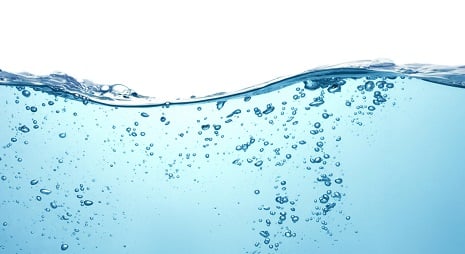 Is Society’s Disposable Lifestyle Choking Our Oceans?
Is Society’s Disposable Lifestyle Choking Our Oceans?

Since first introduced in the 1950s, over 8.3 billion metric tons of plastic have been produced, resulting in plastic waste that is detrimental to our oceans, lakes, rivers and land. Currently over 380 million metric tons of plastic are being produced annually. Plastic pollution is a reality and single-use plastics are a large contributor. Estimates are that around 50% of plastic is used just once and thrown away. Global society has developed a “disposable” lifestyle.
Since 2020, consumption of single-use plastics has increased, largely due to the pandemic, and this number is expected to rise over the next five years. In an attempt to mitigate this major contributor to plastic pollution, the U.S. Interior Department recently announced it will phase out the sale of single-use plastic products in national parks and other public lands by 2032. The measure would help to reduce the more than 14 million tons of plastic that end up in the ocean every year.
With renewed focus on sustainability and protecting the environment, there is a greater need to transition to fiber-based materials. Stephane Lariviere of FPInnovations, a Canadian non-profit research and development organization for the pulp and paper industry, will share insight about potential bio-based solutions to plastic pollution during TAPPI’s International Bioenergy & Bioproducts Conference (IBBC), October 30 – November 2, 2022 in Providence, Rhode Island. His presentation, Bio-based Solutions for the Replacement of Single-use Plastics in Packaging Applications, is part of IBBC’s Innovative Bioproducts and Biopolymers from Biomass session. Attendees will hear about promising packaging solutions developed in the laboratory and demonstrated at the pilot scale, and how these solutions present new opportunities for pulp and paper producers confronted with a declining market for printing and writing papers.
Additional session presentations include:
- Production of Polyhydroxybuyrate (PHB) from Industrial Hemp Waste Pretreated with a Chemical-Free Hydrothermal Process – Deepak Kumar, SUNY ESF
- Bioderived Chemical Extraction from Spruce Needles – Adding Value to Forest Logging Residues – Atanu Kumar Das, Swedish University of Agricultural Sciences
- LigniOx lignins - A Sustainable Alternative to Oil-based Dispersants - Jouko Vyörykkä, Dow
IBBC 2022
IBBC offers attendees a comprehensive technical program focused on critical issues associated with biomass. Developed by industry professionals, the peer-reviewed sessions are expert-led and include high-level discussions on industry trends, new technologies and advancements. The technical program includes the following sessions:
- Bioenergy Research from DOE National Labs
- Innovative Bioproducts and Biopolymers from Biomass
- Biomass Pretreatment Methods
- Biomass Conversion & Densification
- Biomass Conversion Pathways
View technical program
Attendees also have the opportunity to hear a keynote presentation from Thomas Meth, Chief Commercial Officer and Co-Founder of Enviva, a leading global energy company specializing in sustainable wood bioenergy. In addition, IBBC offers a Student Poster Session and Competition, Hot Topics Breakfasts, New Technology Showcase, exhibits and multiple networking opportunities.
IBBC is co-located with TAPPI’s Pulping, Engineering, Environmental, Recycling and Sustainability (PEERS) Conference. Attendees can attend both conferences for only one registration fee.
Registration will open soon. To learn more about each session and speakers, visit tappi-ibbc.org.
